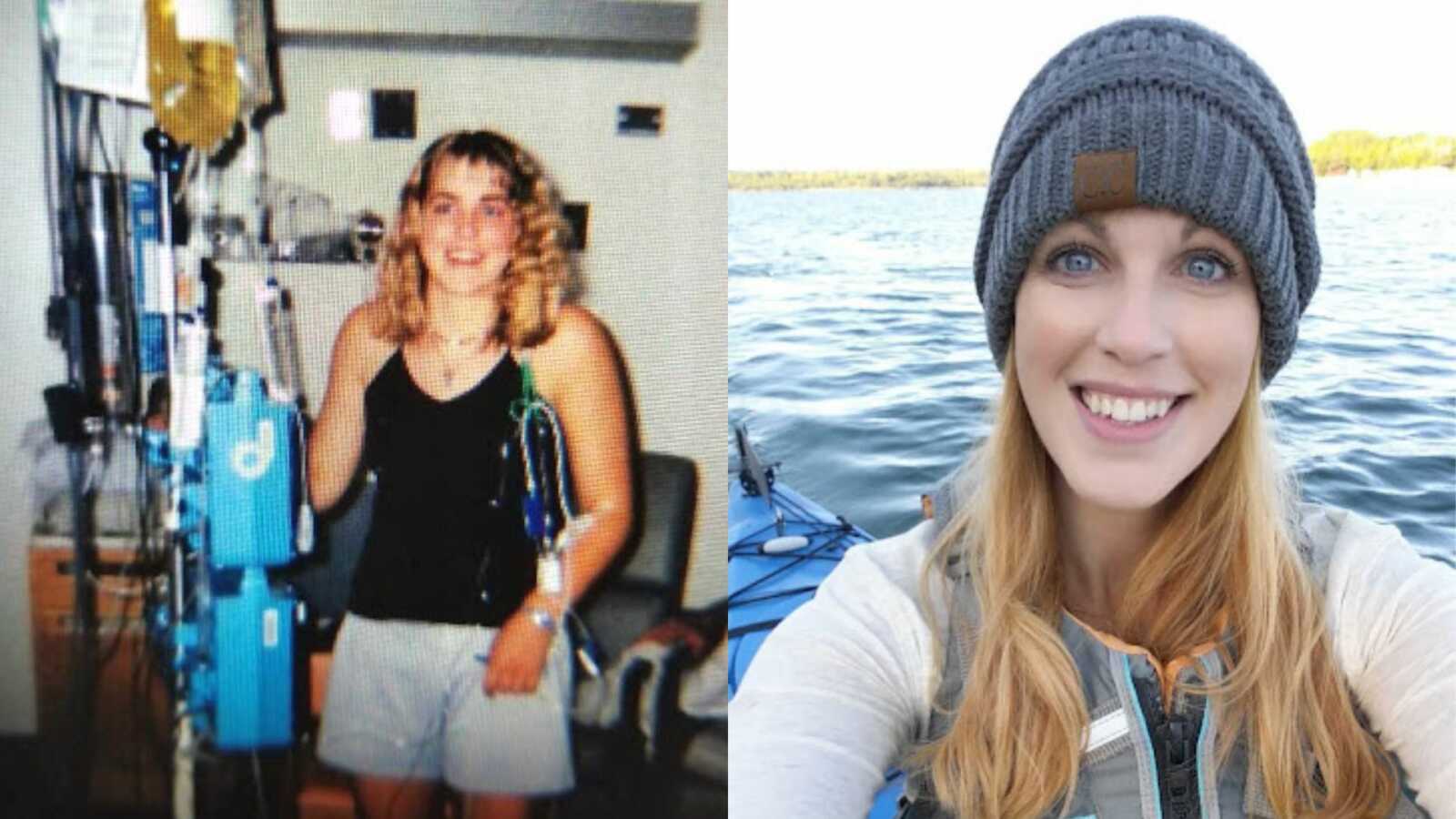Ulcerative Colitis Diagnosis
“What is my story? This is a tough and complicated topic to broach. In short, I love my life on the whole and I’m very proud to say that. I think that, of everything I have been through, endured, accomplished, and seen thus far, feeling a true sense of contentment is my own personal definition of success.
My very first diagnosis of chronic illness was Ulcerative Colitis. I was 14 years old, it was the very beginning of the year 2001, and I had no idea what any of it meant. At the time I was involved in every sport available, as well as lessons in voice, piano, music theory, choir, dance, and I was loving academia.
I was constantly running from tournaments to recitals to competitions to play rehearsals and loving every second of it. I truly reveled in this challenging and competitive world of excellence – I felt unstoppable.
In the fall of 2000, I thought I had the flu, but it was lasting longer than expected, I had more pain in my abdomen than I could ever remember having, and I had bloody diarrhea. A lot. Luckily (and simultaneously unluckily) for me, I was still a child, so I was seen quickly; I was diagnosed quickly.
Things changed at a rapid pace. That school year, I missed 209 classes because I was going to and from specialist appointments and in and out of hospital stays in other cities. I would like to vainly mention here that I maintained a status of honors in school throughout. I went from having absolutely no health challenges – and not even understanding what the word ‘inflamed’ meant – to severe pain, severe allergic reactions and medication side effects, and a relentless disease.
Aside from incredibly embarrassing symptoms, side effects like hallucinations, ‘moon face’, and insomnia, I had to grow up quickly, in certain respects. It’s not just the changes to bodily functions that is so difficult. It’s realizing that there are politics within the medical system that need to be navigated delicately.
It’s the ‘grey area’ of having illnesses that are considered invisible and are quite often judged harshly and trivialized, especially if your disease presentations are not what is considered to be ‘textbook.’ It is a constant balancing act.
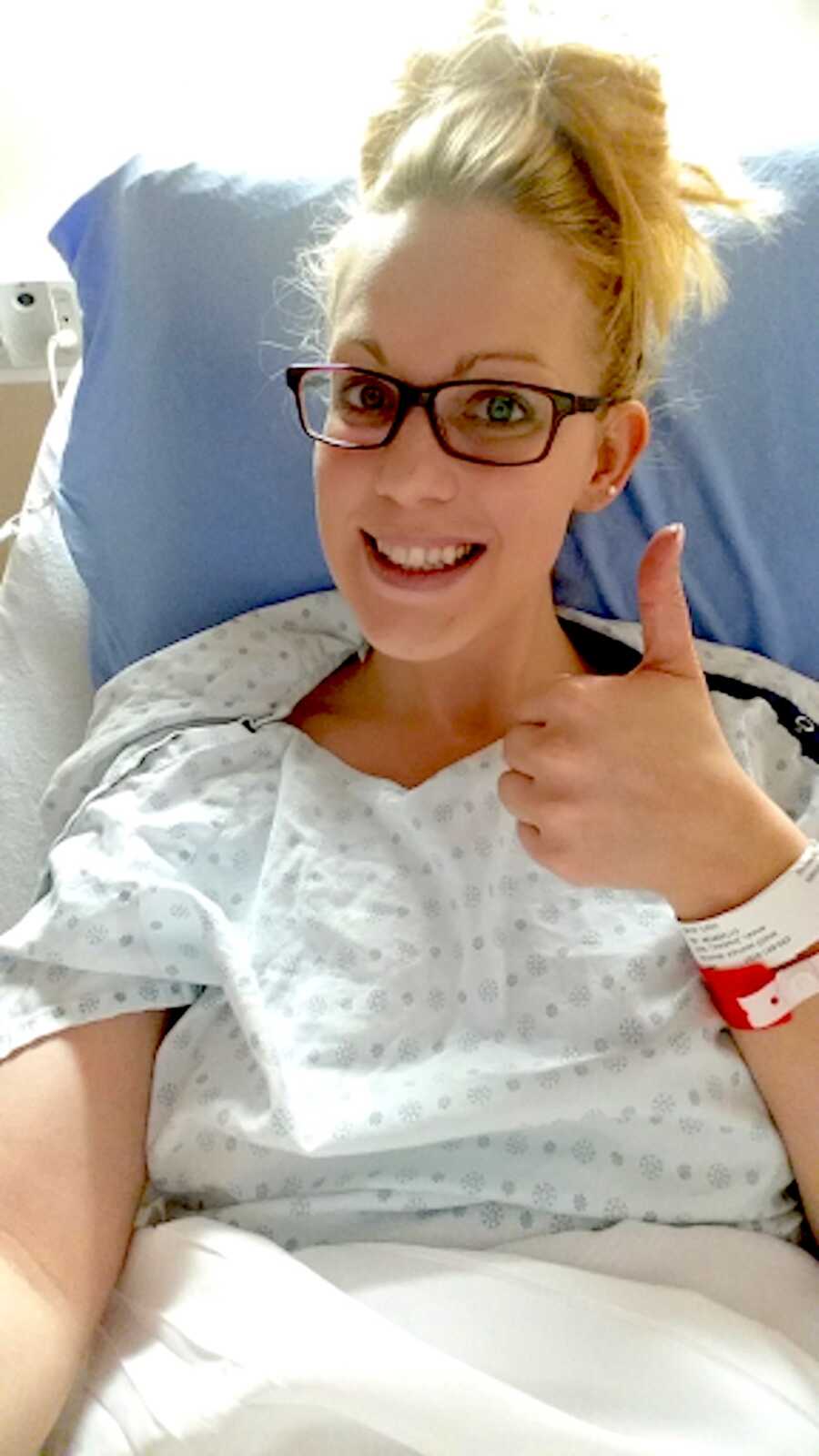
Challenges Of Chronic Illness
There is an extensive list of challenges that I could fill these pages with, but I think the most considerable and specific difficulties would include having to wear Depends underneath my grad dress, bouts of incontinence, dreadful side effects and allergic reactions, all while navigating an adult medical world beginning as a child. I also learned, while I was still a child, that I may never be able to conceive or bear children. This was made final after a hysterectomy and oophorectomy at age 30.
One of the biggest blows was after my large intestine was removed and I endured an ostomy for my senior year of high school. At that point I was considered cured, only to be diagnosed with Crohn’s Disease shortly after my second abdominal surgery.
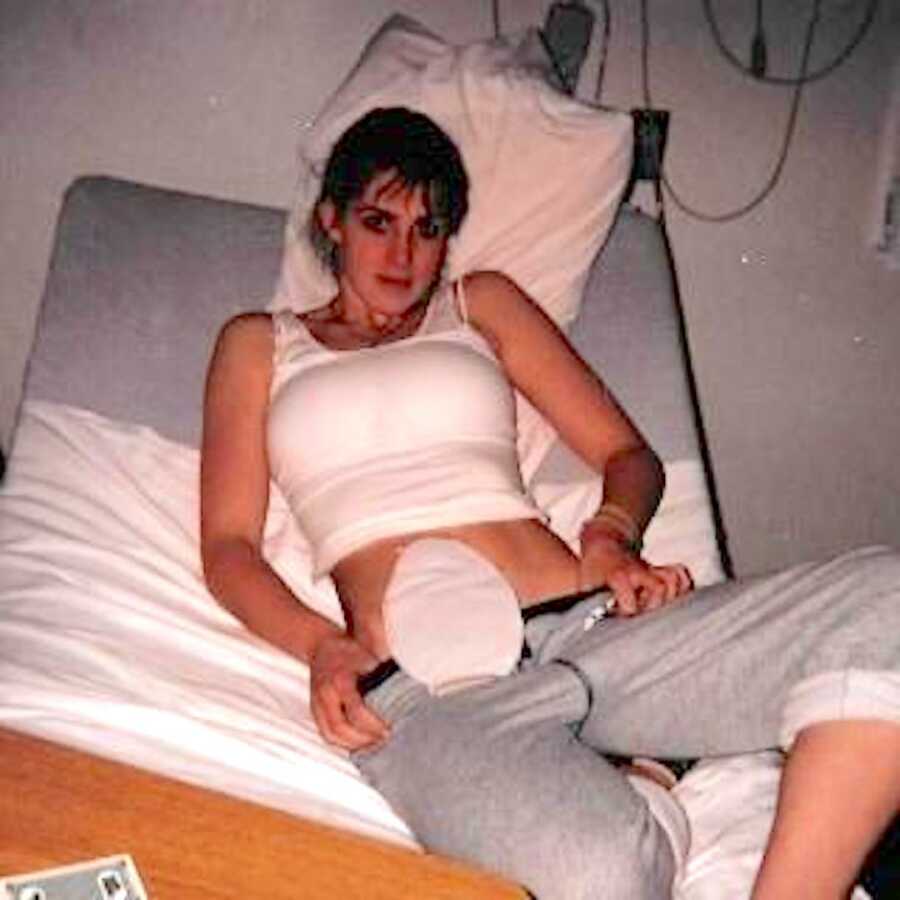
I have learned to live in a physical body that no longer matches my mental fortitude and restlessness. That doesn’t even include the emotional, mental, and social toll it takes to be forced to handle these elements – regardless of age. The worst part about having any illness is the continuous loss of identity.
In every way that I would ever describe myself: hard working, punctual, athletic, studious, reliable – these identifiers are challenged daily, and I have very little control over it. It causes a lot of unnecessary guilt.
Now the flip side – with life being put in a very abrupt perspective, everything I’ve gone through has forced me to slow down, reprioritize, and learn to reach new and surprising levels of acceptance and adaptability.
Making The Most Of Life With Chronic Illness
I have always been a dedicated student, so I am compelled to find resourceful ways to keep up my studies, my athletics, my music, and over the years I have found various hobbies that keep me engaged and motivated. Although I have had to learn to give up a lot of control, I have found workarounds (thus far) for every state of my body’s many different personalities.
In truth, I never know, day to day, how I will be impacted by my body. So I learned to ‘go with the flow,’ and have built a life where I have options – no matter how I’m feeling.
If I have a fantastic day where my pain is low, my mobility is high, and my bathroom breaks are a little less frequent (or at least less panicky), then I have 10+ different activities and hobbies to engage in. Opposite to that, if I wake up and have a day where I cannot leave the bed, unless it’s dragging myself to the washroom, I still have 10+ different options to keep my mind active and connected.
Plus, I have developed a strikingly morbid sense of humor. In a way, humor has been my greatest mental defense from letting the multitude of medical problems become perpetually overwhelming.

Of course, I have developed numerous illnesses and comorbidities alongside Crohn’s Disease – some of which have gone into remission or disappeared altogether. Illnesses still currently wreaking havoc on my everyday life include:
- Hashimoto’s Thyroiditis – which affects me mostly in the areas of vanity and fatigue.
- Migraines – I mean, fairly self-explanatory.
- Tachycardia – a lovely little additional cause for anxiety and fidgeting.
- Early Onset Macular Degeneration – nothing like having 70-year-old eyes at age 21 and the constant anxiety of wondering when I will lose my vision ever since.
- Ankylosing Spondylitis – affecting my mobility, causing major changes to my previously athletic existence, and sending me down a multi-year road with serious pain medication. Then, enduring excruciating procedures to burn the nerves in my SI joints and spine just so I don’t have to use an ambulatory wheelchair or take opiates.
- Angioedema – because why not add some body dysmorphia, pain, and a forceful reason to keep my emotions as neutral as possible so I don’t swell to the point of being unable to breathe on a regular basis?
Then, the combination of these illnesses and the triggers that span everything from generalized emotions to foods, physical activity (and everything in between) has rendered me incapable of working. Before I was diagnosed with Ankylosing Spondylitis and Angioedema, I was working, but not quite full-time, and I was consistently crashing approximately every three months. Once I developed those two additional illnesses, my crashes were much more frequent, significantly more volatile, and attempting to do anything on a consistent schedule is now virtually impossible.
With all of that said, and with everything that hasn’t been said, I have learned some really valuable life lessons and coping skills.
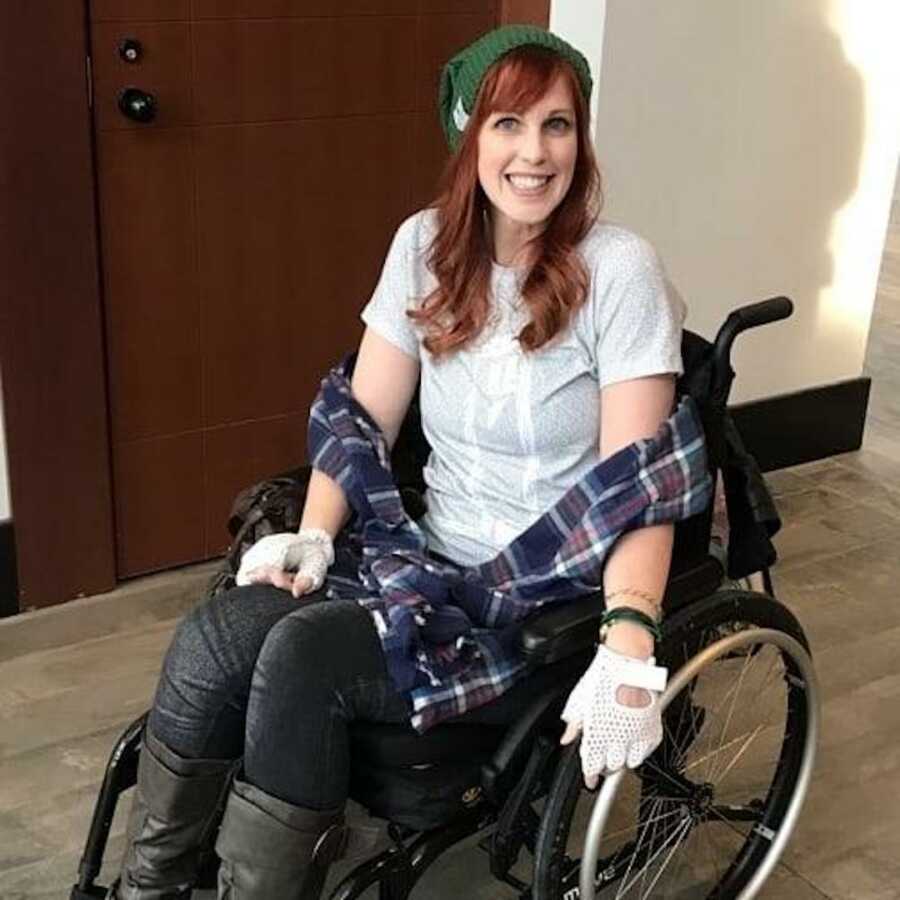
Lessons I Have Learned From Chronic Illness
Here are 10 important lessons I have learned from what I go through:
1. Find love. Find it in people, pets, places, moments, hobbies, books – frankly anything that makes one feel connected to something/someone.
2. I can stay positive and optimistic while simultaneously having a tough time.
3. Using humor about my situation is not the same as making light of it.
4. I am not being punished for any sins or mistakes that I have made. I simply have a body that does not work properly, and I need to accommodate that in my everyday life.
5. I will do whatever I can to improve my disease experience and symptoms, but I have had to learn to let go of control.
6. Focusing on the science and biology of what my body is physiologically doing allows me to take a detached attitude when things are particularly difficult.
7. My emotions, even if they are induced by random medications, still have validity. I know, for myself, that I need to acknowledge, sit with, and feel these emotions before I can move on. Giving myself time to analyze them without judgment is immensely helpful.
8. Slowing down is not a negative action. Punishing myself for ‘not being productive’ is, incidentally, not productive. Slowing down my thoughts, my own expectations, and just taking a little extra time for everything has been unbelievably positive.
9. The body does not always make the distinction between ‘good stress’ and ‘bad stress’. Either one can affect illness and trigger flare-ups. (Like ending up in emergency after being proposed to and, predictably, the night before our wedding day)
10. Chronic illness has a bad habit of changing, drastically, over and over and over and over again. One day I could be active and energetic, the next day I could be in a wheelchair and barely able to stand on my own. It doesn’t have any bearing on who I am or how I present my illnesses to the world – it is entirely based upon what my illnesses are doing to me.
I have a beautiful life, filled with beautiful relationships and moments. I am unmistakably happy and mostly fulfilled, with few regrets.
I am also in a lot of pain and deal with, very literally, pages worth of negative and challenging symptoms. I also feel guilt, and sadness, and anger, and frustration, even rage sometimes. None of life is easy. There are days when I can barely move – sometimes from physical complications, other times from emotional breakdowns, especially when I realize how incredulous some of my experiences have been.
Nevertheless, I have found extraordinary joy, humor, passion, and love, not just despite being ill, but also because of it and how it has changed my life and my perspective.
If there is one thing – one thing – that you take from this, let it be to find a type of love, any type you can, and realize the definition of success is whatever you decide it is for your life.”
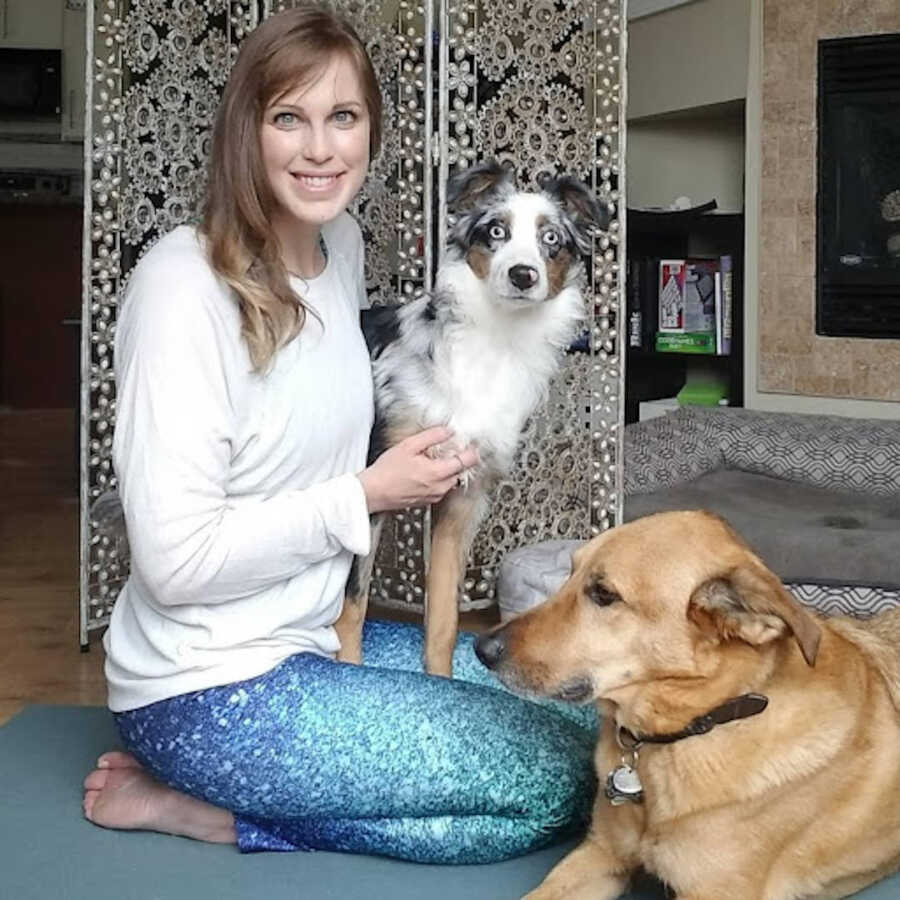
This story was submitted to Love What Matters by Karissa Diane Pentlichuk of Calgary, Alberta. You can follow her journey on Instagram and her blog. Join the Love What Matters family and subscribe to our newsletter.
Read more stories like this:
Do you know someone who could benefit from this story? SHARE this story on Facebook to let others know a community of support is available.

